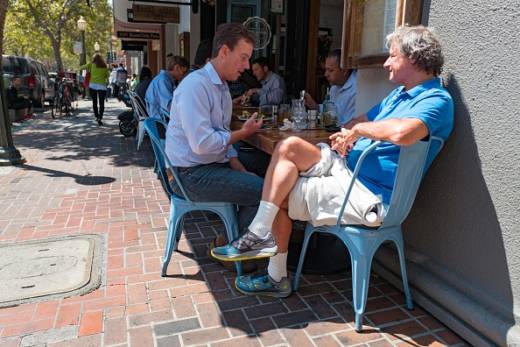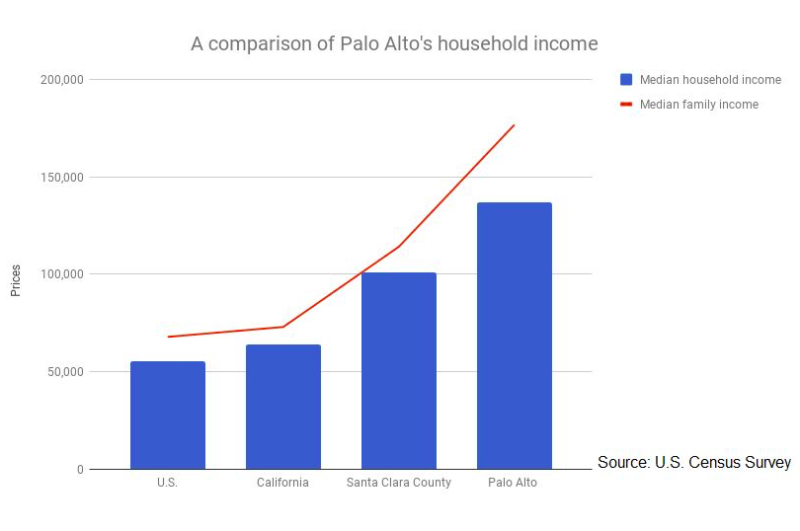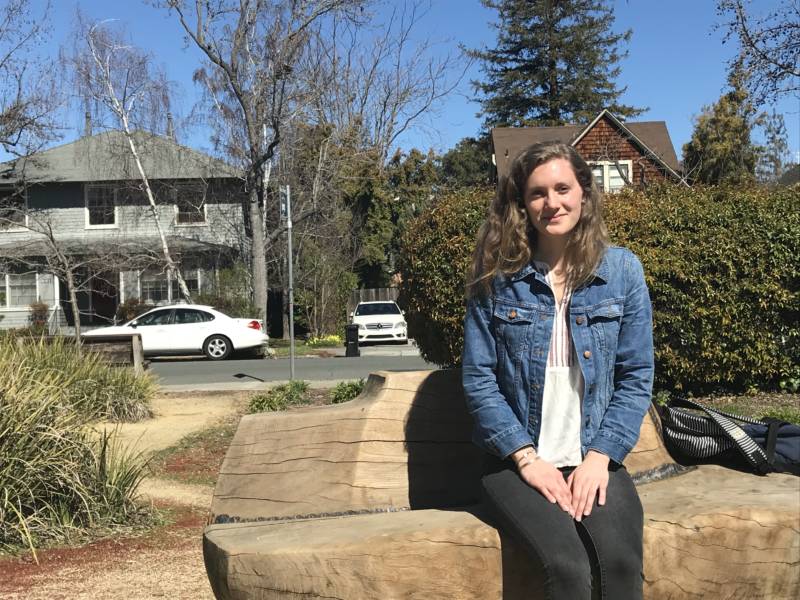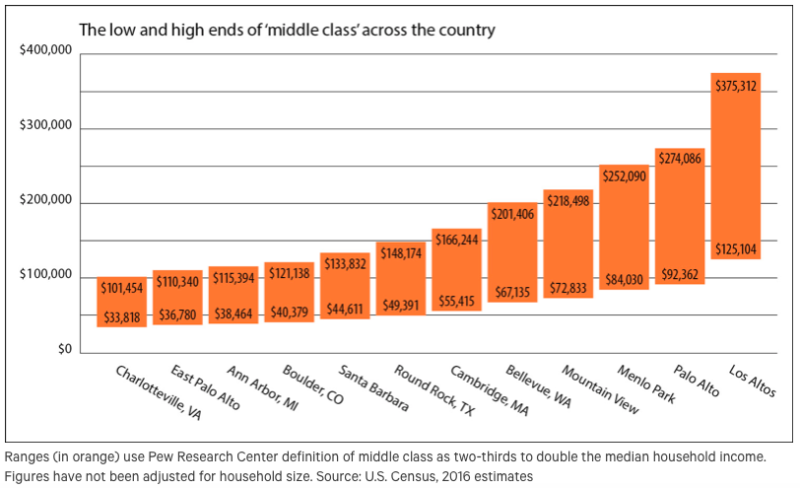How do you define “middle class?” According to a recent survey in the Palo Alto Weekly, 81 percent of residents consider themselves middle class, even though they’d be considered wealthy by national standards.
I met with Stanford University senior and freelance writer Fiona Kelliher in downtown Palo Alto to talk about her piece and what her findings reveal about the people who call Palo Alto home.
“The biggest surprise for me was the sheer number of people who describe themselves as middle class,” Kelliher says.
Kelliher’s survey, which was conducted in December and early January, received 250 responses. Most identified as middle class, their salaries ranging from $30,000 to $400,000. Part of this label, according to Kelliher, might be about optics. She found that for many people she interviewed, calling themselves wealthy is kind of a bad thing.
“That’s fascinating to me,” Kelliher says. “One sociologist puts it as a moral stigma around wealth. And I think that really does hold true here. I will say, though, I think the key caveat of a lot of these elements that we’re parsing out is that the cost of living really is astronomical, too. Looking at it from the outside, a lot of people would agree that people here are wealthy, but from the way they feel day to day and the kinds of spending choices that they make, they feel differently.”




